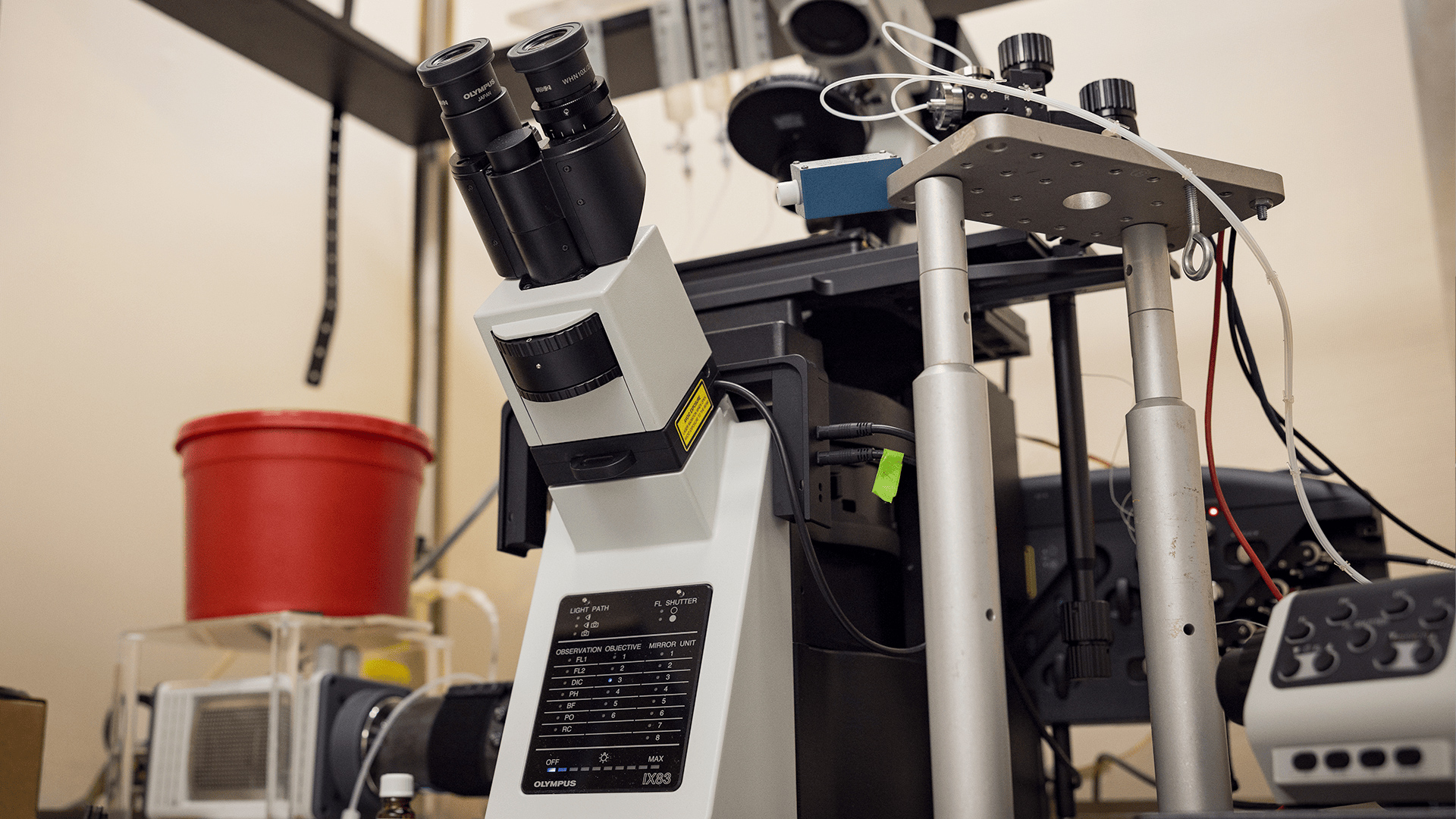Olympus TIRF system with FRET and patch clamp

- Olympus IX83 epifluorescence microscope
- TrueFocus Zero drift automatic focus
- Olympus CellTIRF module for TIRF microscopy
- 4 objectives
- 20x, NA 0.45, LUC PlanFl N (Air)
- 40x, NA 0.55, SLCPlanFl (Oil)
- 60x, NA 1.45, Apo N (Oil)
- 100x, NA 1.49, UPlanApo (Oil)
- Hamamatsu ImagEM EMCCD digital video camera (C9100-13): refresh rate ≈ 32 Hz at full 512 x 512 pixels without binning.
- Vortran STRADUS® VERSALASE laser launch housing three TTL-shutter-controlled diode lasers (50 mW 488 nm, 50 mW 561 nm and 140 mV 637 nm).
- TTL-shutter-controlled Coherent 40 mV 445 nm laser.
- Photometrics DV2 Dual View beam splitter allows CFP/YFP FRET imaging in either standard epifluorescence or TIRF imaging modes.
- HP SB EliteDesk 800 computer running Windows 10.
- Visiview software (Visitron Systems) for imaging and microscope control, and Olympus CellTIRF (v. 1.4) for control of the TIRF module.
- The microscope is also coupled to a patch clamp workstation.
- Axopatch 200A patch clamp amplifier (Axon Instruments, Inc.)
- MHW-3 Narishige micromanipulator
- TMC (series 63-543) vibration-free isolation table
- TMC Faraday cage o GWINSTEK digital storage oscilloscope (model GDS-2102)
- Digidata 1322A acquisition system
- PClamp software (v. 9; Axon Instruments, Inc.) running on a separate Windows 7-based desktop computer
- This configuration allows for simultaneous recording of membrane currents or voltage, and TIRFM/FRET imaging.
- State-of-the-art perfusion system to allow for rapid solution changes during physiological experiments
